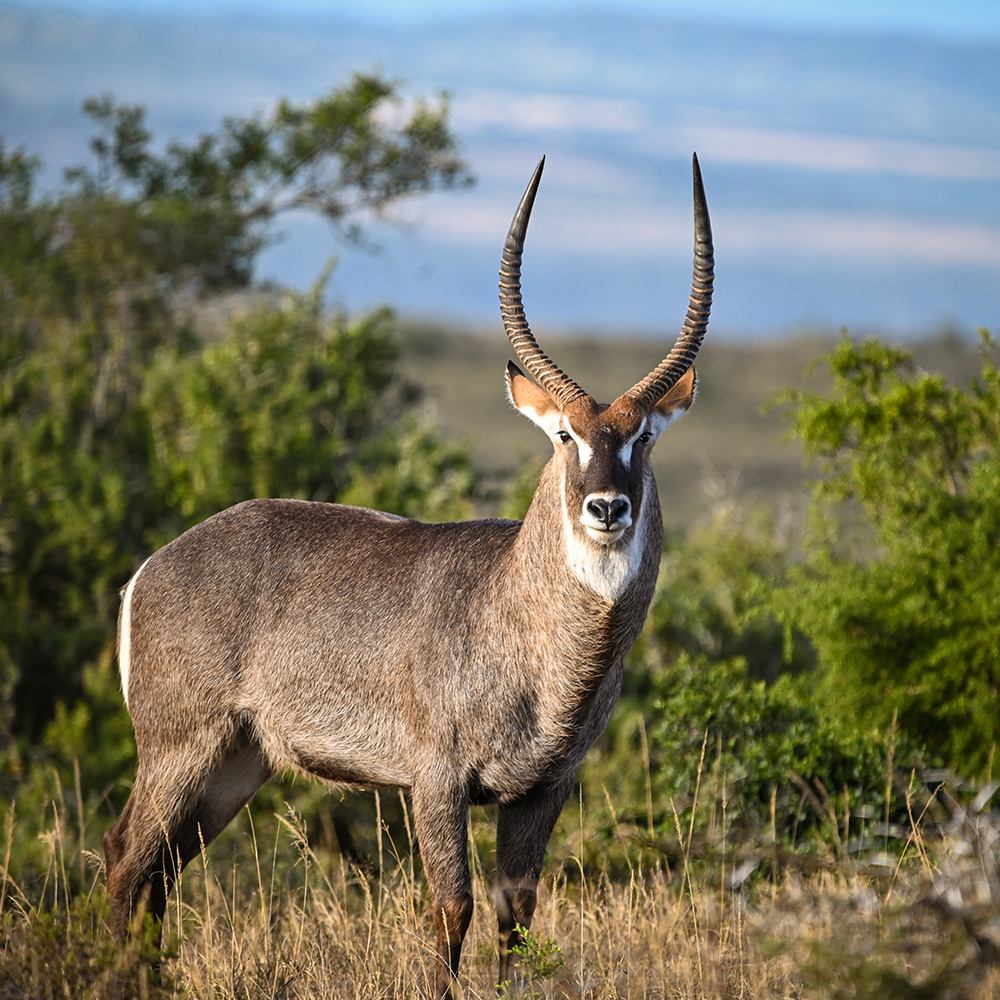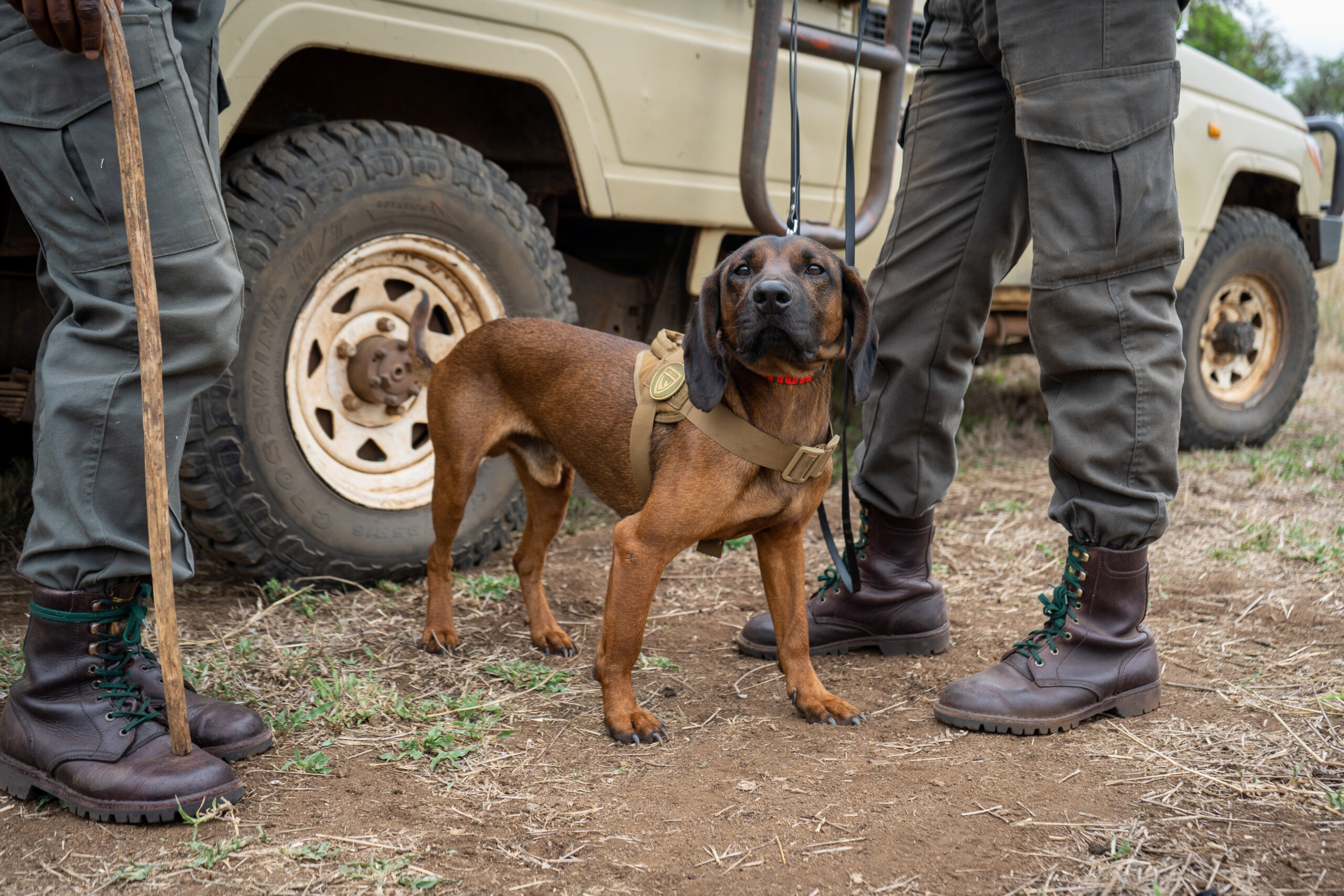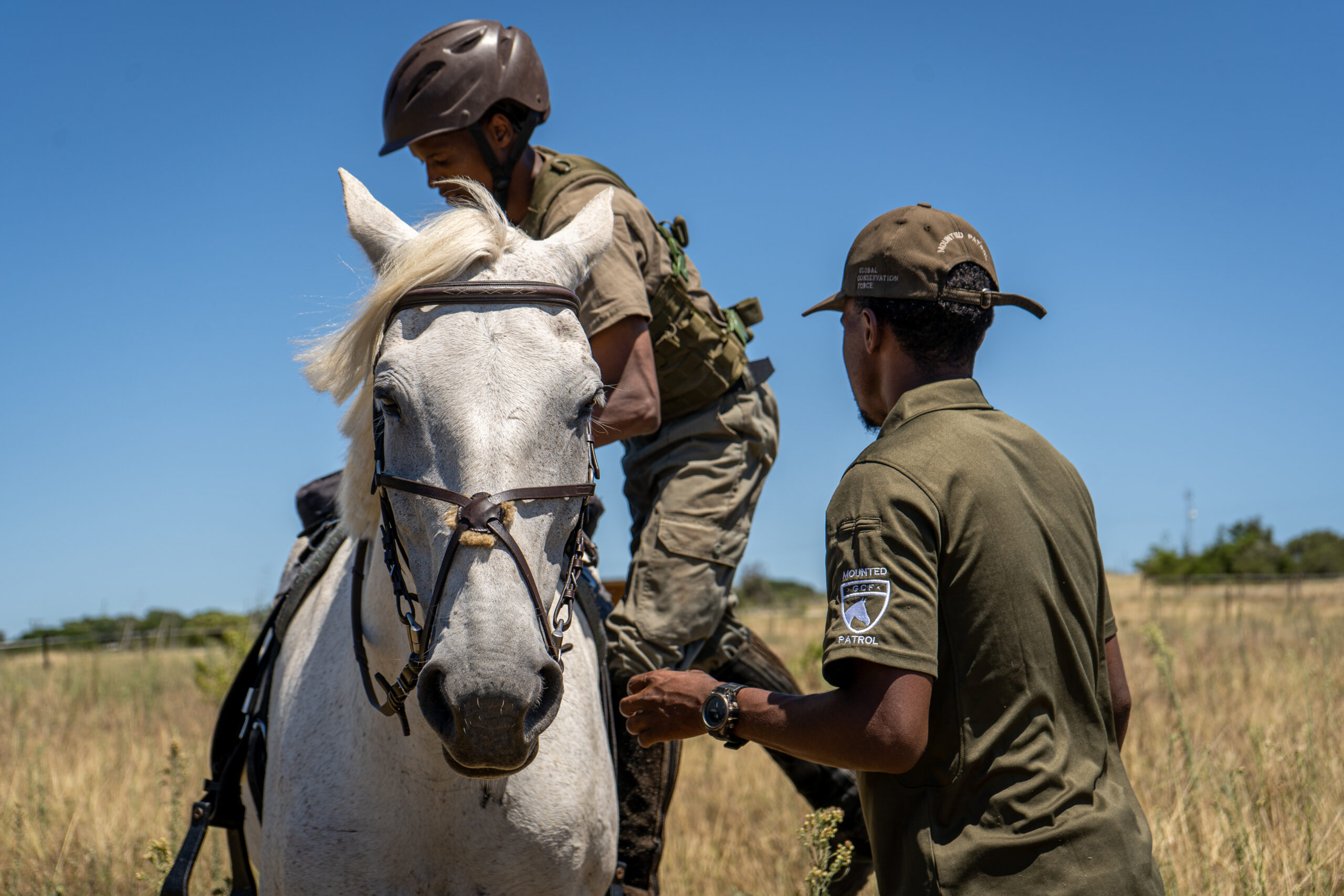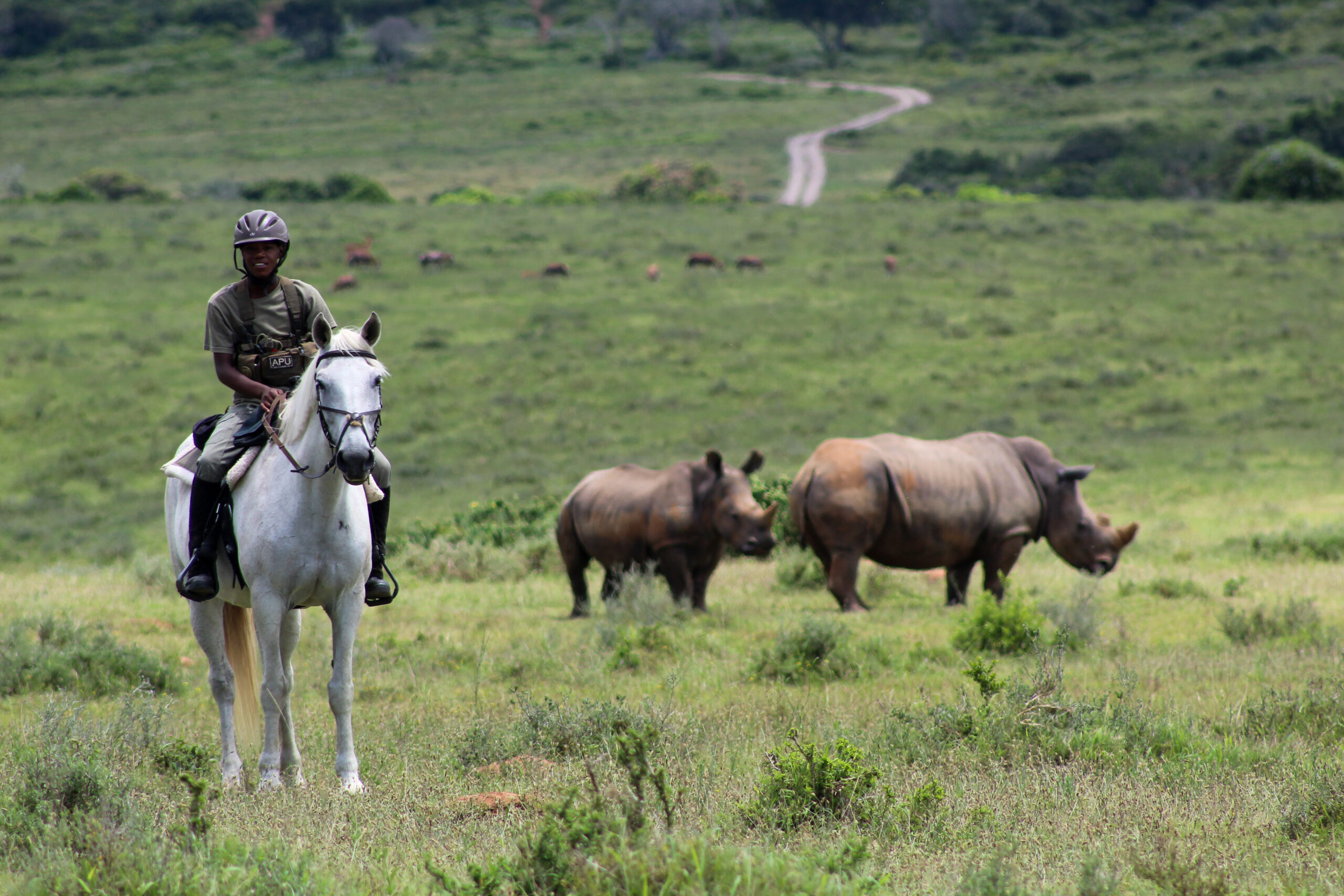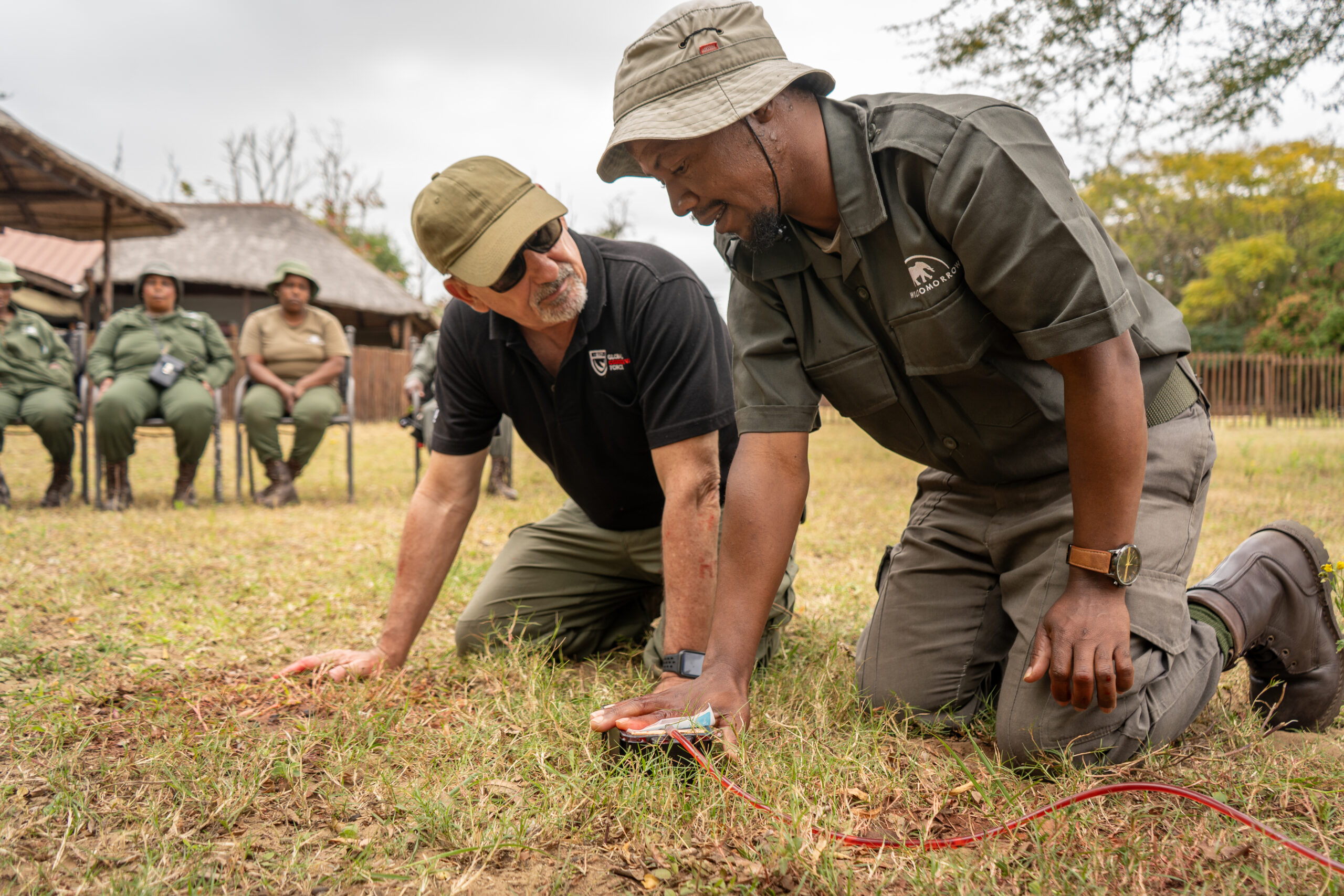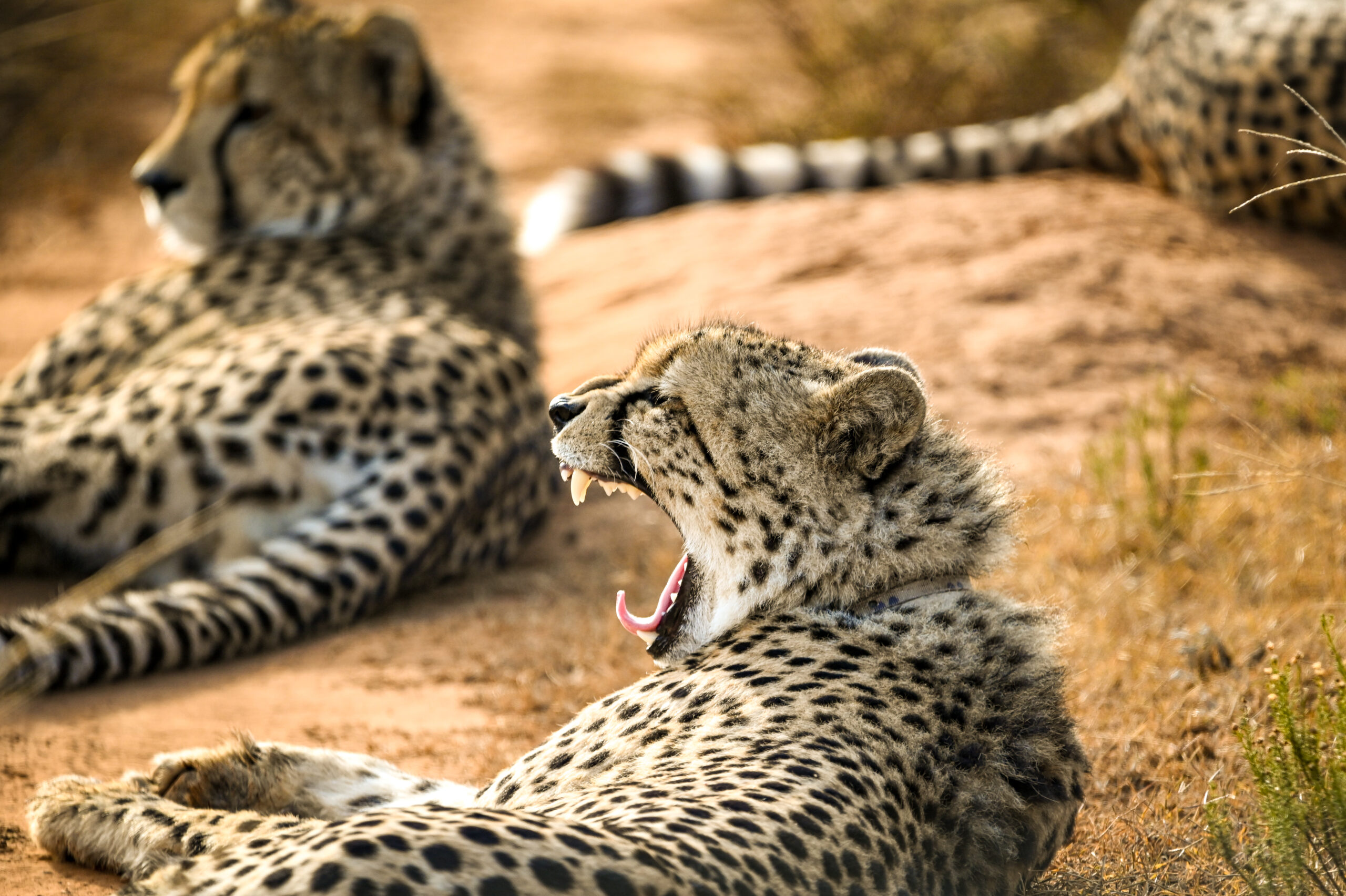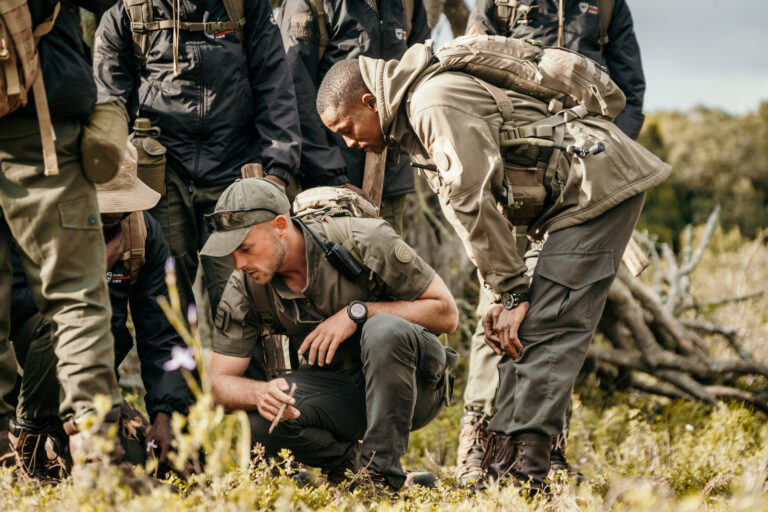
Global Conservation Force (GCF) operates in multiple countries, navigating diverse languages, cultures, and conservation priorities across the globe. At the heart of our work are our four pillars of conservation, which operate in tandem with community-based conservation, regional anti-poaching strategies, and invitation-only requests for GCF to assist in-situ, boots-on-the-ground field operations.
For those passionate about wildlife protection and conservation, becoming a GCF Instructor represents one of the most dynamic and challenging opportunities in the field. Our instructors work directly in the Africa bush and other remote locations, often under extreme conditions and without the luxuries of modern civilization. They operate in environments that require both mental and physical resilience, as well as the ability to wear multiple hats: leading teams, mentoring new field staff, and executing mission-critical tasks.

Professional Development Path to Becoming an Instructor
GCF encourages a structured professional development path for those interested in becoming an instructor. This ensures that all instructors have the practical, operational experience needed to teach from reality rather than theory. Key steps include:
Intro to Anti-Poaching Course
This foundational course introduces core principles of anti-poaching operations, field safety, wildlife protection, and ethical conservation.
It’s designed for individuals to gain hands-on exposure to ranger operations, learn operational protocols, and begin understanding the realities of field work.
Specialty Courses
After the introductory course, participants can take specialized courses aligned with wildlife protection and conservation operations.
These may include tracking, snare and counter-snare techniques, K9 handling, tactical field operations, and wildlife veterinary practices.
Each specialty course builds expertise in a particular operational domain and prepares candidates for real-world deployment.
Ranger Field Experience
Spending time as a field ranger is a crucial step. Practical experience in real-world conditions ensures that when you teach, your lessons are grounded in reality, not just classroom theory.
This experience develops confidence, decision-making skills, and operational knowledge that instructors rely on to mentor, train, and guide others in the field.
Instructor-Level Development
Once the required field experience and specialty training are complete, candidates may pursue instructor-level responsibilities, combining operational expertise with leadership, mentoring, and teaching capabilities.
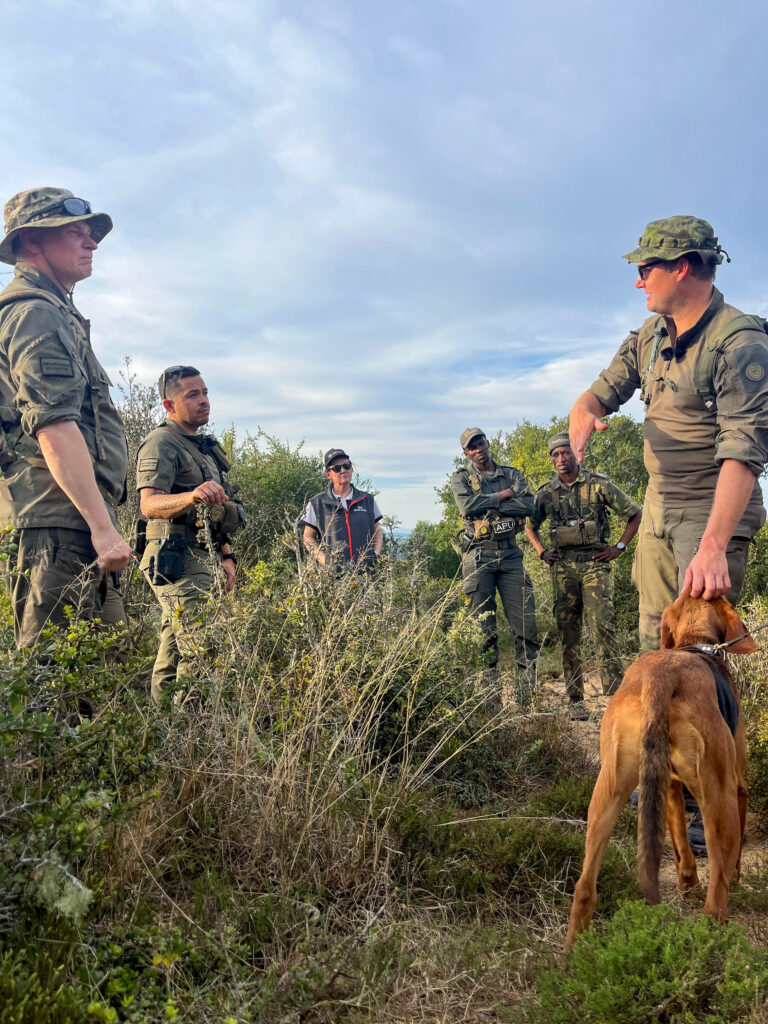
The Role of a GCF Instructor
GCF Instructors are not just teachers—they are mentors, operational leaders, and field specialists. Each instructor must demonstrate real-world experience in wildlife conservation, anti-poaching, and field operations. Instructors are evaluated on multiple competencies, including:
Firearms proficiency, tactical skills, and K9 handling
Wildlife and dangerous game management, including tracking, capture, and relocation
Anti-poaching patrol operations and counter-snare techniques
Survival skills, including backpacking, navigation, extreme-weather adaptability, and medical first aid
Leadership, team management, and mentorship
Teaching and instructing others, translating field expertise into practical knowledge
Our instructors must also be capable of working in diverse cultural and regional contexts, managing complex programs, and adjusting strategies to local conservation goals. Every assignment challenges instructors to integrate operational excellence with ethical wildlife protection practices.

Working in Dynamic and Challenging Environments
GCF deployments take place in remote and rural areas, where logistical challenges, environmental hazards, and unpredictable conditions are the norm. Instructors need to:
Live and operate without daily conveniences such as running water, showers, or internet
Navigate and travel through multiple terrains, from dense bush to rivers and rugged savannas
Adapt quickly to changing conditions and work alongside international teams
Maintain professionalism, focus, and personal accountability under stress
This unique operational environment attracts a special type of individual—someone willing to commit to the mission of conservation with discipline, humility, and resilience.
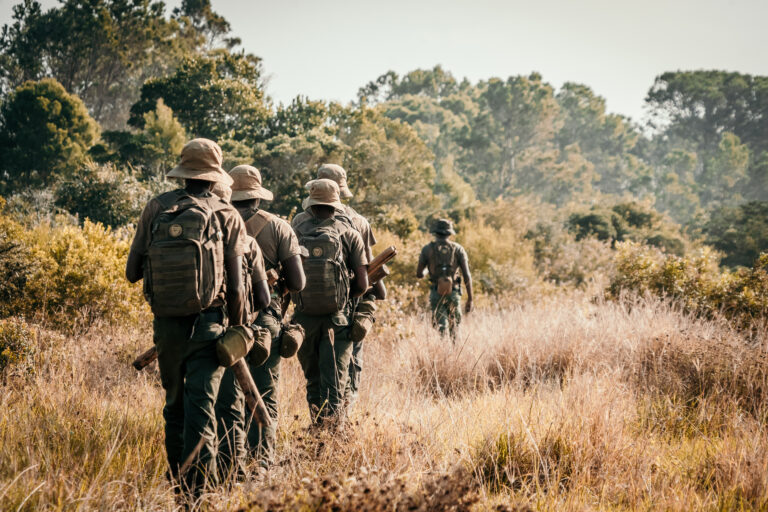
Global Reach, Local Impact
While GCF works internationally, all instructors are assessed on their ability to manage programs, themselves, and their training in the Africa bush. This ensures that every team member can contribute to the success of in-situ conservation operations while respecting local cultures and ecosystems.
Each GCF program is invitation-only, reflecting the high level of trust and operational integrity required. Instructors work alongside local rangers and communities to address regional poaching pressures while supporting sustainable conservation initiatives.
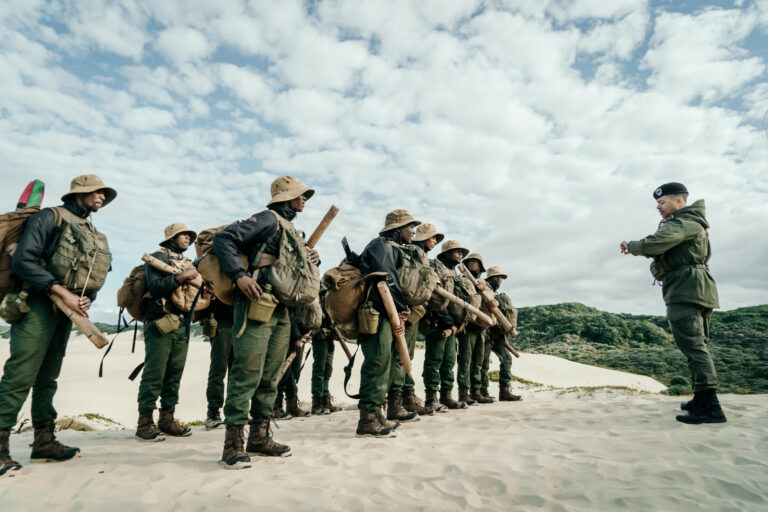
Metrics for Applying to Become an Instructor
Candidates for the GCF Instructor role are evaluated across multiple categories, including:
Field and Operational Skills: Firearms, tracking, K9 handling, snare operations, navigation, and survival skills
Leadership & Mentorship: Ability to guide teams, mentor new staff, and deliver high-quality instruction
Professional Development: Completion of introductory and specialty courses, as well as practical ranger experience
Medical and Safety Competency: TECC, Wilderness First Aid, venomous bite stabilization, and working dog first aid
Adaptability: Comfort in extreme conditions, remote deployments, and multi-cultural environments
Media & Reporting Skills: Documentation, photography, videography, and operational reporting
Candidates must demonstrate competency, experience, and operational judgment in these areas before being considered for instructor roles.
Core Values We Seek and Maintain
GCF Instructors embody the following core values in every aspect of their work:
Integrity: Ethical behavior, honesty, and accountability in all operations
Professionalism: Conduct, decision-making, and responsibility under pressure
Resilience: Physical and mental toughness to operate in challenging, remote, and unpredictable environments
Collaboration: Respectful engagement with teams, local communities, and partner organizations
Dedication to Conservation: Passion for protecting wildlife and supporting sustainable ecosystems
The Instructor Selection Process
Application & Skills Assessment – Candidates submit their experience, training, and competencies via the GCF Instructor Application.
Reference Checks – Professional and personal references are reviewed to verify experience and reliability.
Field Evaluation – Selected candidates may participate in a deployment or program to assess operational aptitude and teaching capability.
Mentorship & Observation – New instructors often begin as apprentices or co-instructors, receiving mentorship from senior instructors.
Final Selection – Based on performance, feedback, and demonstrated skills, candidates may be invited to join the instructor cadre full-time.
Please note: Submission of an application or participation in a GCF program does not guarantee contact, re-deployment, or full-time employment. Selection is based on a combination of skills, experience, references, and operational fit.
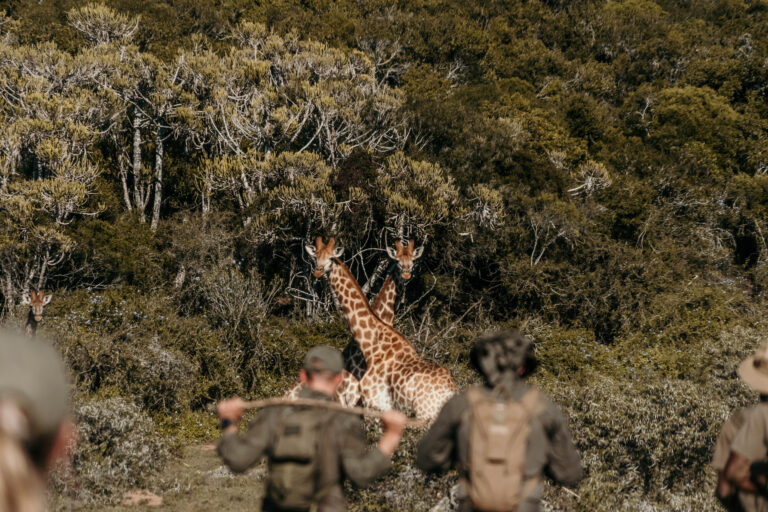
Apply When Ready
If you are passionate about wildlife, resilient in challenging environments, and committed to learning and teaching in operational conservation, we encourage you to apply to become a GCF Instructor once you meet the minimum competency standards.
Start with our Intro to Anti-Poaching Course,
Progress through specialty operational courses,
Gain real-world ranger experience,
And develop your skills in leadership, mentoring, and instruction.
The path is demanding, but it is one of the most rewarding ways to make a tangible difference in global wildlife conservation. Becoming a GCF Instructor is not just a career—it is a commitment to protecting wildlife, empowering communities, and safeguarding the future of endangered species.
- Copyright 2024. All Rights Reserved. Powered by Wild Media.


